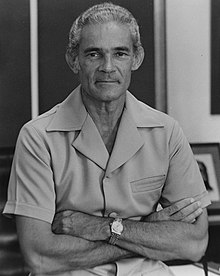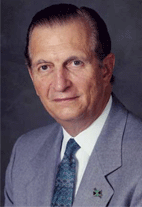 |
| National Flag of Jamaica |
December 29, 2011 the People's National Party (PNP) once again rose to power in remarkable fashion after winning Jamaica's 16th General Elections since Adult Suffrage was granted in 1944. The PNP claimed a 41-22 victory which has now changed to 42-21. Once again the term "PNP country" was used. Many Jamaicans i'm sure lack the knowledge of Jamaica's political history, but i'll try my best to give my own interpretation on the term "PNP country."
 |
| Norman Manley |
In Jamaica's political awakening, 2 leaders arose from Jamaica's "brown class". They were Norman Manley and Alexander Bustamante. Manley was a scholar while Bustamante's charm made him a natural man of the people. These men both came to dominate Jamaica's political history and wanted to lead an Independent Jamaica. In colonial Jamaica shaded or pigment mattered. Both came from the mix raced upper classes and had little in common with the under class they sought to represent.
The PNP was formed in 1938 by Norman Manley. Manley was an Oxford graduated and lawyer by profession. His cousin Bustamante formed the Jamaica Labour Party (JLP) in 1943 and was accepted by the blacks as blacks were grateful to him for supporting them and breaking from his own social background.
Manley was and idealist and loved Jamaica but unlike Busta he had trouble connecting with the black majority. Bustamante showed his love for the people as he said to the police "shoot me and let my people go".
By this time in our history, Bustamante was for the people and was elected first Prime Minister of Jamaica in 1962. Manley was sadden by the fact that he would not lead his country into Independence after he went to Britain to negotiate Jamaica's Independence. In the early years after Independence Jamaica got a cultural awakening and was referred to as the "Jamaica Miracle".
The middle and upper class were making financial gains post independence while majority of black Jamaicans suffered. Norman Manley was singled out to blame for a lot of the things that went wrong after Independence. Manley walked away from politics in the late 1960s paving the way for his charismatic son Michael Manley. The younger Manley proved to be something his father wasn't and that was connecting with the black society in Jamaica. By this point the PNP was the party rooted in the middle class while the JLP because of Busta's relation with the masses his party had a large support of blacks.
By this time in our history, Bustamante was for the people and was elected first Prime Minister of Jamaica in 1962. Manley was sadden by the fact that he would not lead his country into Independence after he went to Britain to negotiate Jamaica's Independence. In the early years after Independence Jamaica got a cultural awakening and was referred to as the "Jamaica Miracle".
 |
| Alexander Bustamante |
The middle and upper class were making financial gains post independence while majority of black Jamaicans suffered. Norman Manley was singled out to blame for a lot of the things that went wrong after Independence. Manley walked away from politics in the late 1960s paving the way for his charismatic son Michael Manley. The younger Manley proved to be something his father wasn't and that was connecting with the black society in Jamaica. By this point the PNP was the party rooted in the middle class while the JLP because of Busta's relation with the masses his party had a large support of blacks.
 |
| Michael Manley |
When Manley took over the leadership of the PNP in 1969, Jamaica was in desperate need of new direction. There was high unemployment, poverty and almost no social welfare. On the campaign trail in the 1970s Manley said "We come too far we not turning back now. We have a pride now, we have a place now, we have a mission now. Together we are gonna march forward under God's heaven building democratic socialism. Glory to socialism". Manley had formed a bond with the black majority and said "betta mus come, give me a chance and betta mus come". Manley swept to power and had his own socialist agenda for Jamaica. In the early 1970s he gave land to the farmers, created jobs for the poorest working class women and provided free education for every child. This made Jamaicans in charge of their own destiny. Manley wanted radical social change to favor the poor and members of his own class were nervous. As Manley's "democratic socialist" philosophy grew the United States got nervous and Manley said "We are not angering the United States, they are angering themselves". Manley also said 'We have that friendship with Cuba as part of a world alliance of third world nations that are fighting for Justice of poor people in the world". Manley continued his speech by saying "As long as this party is in power, we intend to walk through the world on our feet and not on our knees". Because of this Jamaica paid the consequence and aid from the United States was cut from 13 million dollars to 4 million.
Manley socialist dream became a socialist nightmare, he told the middle class that if you don't like it there are 5 flights to Miami. Many of Jamaica's middle class took his advice and left with their money.
 |
| Edward Seaga |
Tourism fell, thousands refused to travel to Jamaica due to negative reports in International newspapers. Manley still had enough grass root supporters to win the 1976 election as the term "People Power" or "Power for the People" was used. Many "poor" Jamaicans supported Manley and that he only wanted to make their lives better. The crisis still deepen as both foreign and local investors refused Jamaica because of the "Socialist" philosophy. Over 800 people died in the 1980 elections. Manley was on the ropes as he conceded to his rival Edward Seaga. Under Seaga, Jamaica and the United States repaired their bonds. Life was back to normal for some people as money flowed from the United States and Investment followed.
 |
| P.J. Patterson |
In the 1989 election, Michael Manley and the PNP were returned to power. Many thought Manley would return to his socialist policy but were left disappointed when the policies were different. Manley's second coming lasted only 3 years before handing over the leadership to PJ Patterson, Jamaica's first "black" Prime Minister. The terminology "PNP Country" continued to make itself evident as they won the 1993, 1997 and 2002 elections leading to 18 years in power.
 |
| Bruce Seaga |
In 2007 the JLP return to power led by Bruce Golding. However Golding gave up the post of Prime Minister in October 2011 amid a bunch of scandals which affected his party which included the Manatt, Phelps and Phillips and Christopher "Dudus" Coke extradition request.
The youthful Andrew Holness took over and became the country's youngest Prime Minister. His short reign was affected by another scandal in "JDIP". Nevertheless he was seen as the Party's best hope to remain in power. He set a December 29, 2011 election date and was favorite to win the election.
 |
| Andrew Holness |
However the Opposition PNP returned to their roots and focus on "People Power" and "Power to the People" in their ads and campaign across the island. And on December 29, 2011 People Power proved Powerful as the PNP led by Portia Simpson-Miller held true it's creed that Jamaica is indeed a PNP country shocking the ruling JLP by claiming 41 now 42 of the 63 constituencies to the JLP's 21. After this, which was Jamaica's 16th general election, no one can argue that Jamaica is indeed "PNP Country".
 |
| Portia Simpson-Miller |
In concluding the PNP has separated itself form the "middle class" which is was associated with during Norman Manley and re associated itself with the masses as it did under the leadership of Michael Manley. The JLP has now claimed the tag of being "racist" and catering to Jamaica's middle upper class or the white/brown Jamaicans and must now find a way of reconnecting with black Jamaica building from the grass roots up. The question I now ask myself, will "People Power" grant the PNP another 18 years in office or will JLP rebuild under Andrew Holness and become the modern-day Bustamante? As I close I would like to borrow the slogan from the PNP and say that "Power of the People" will decide who leads Jamaica Land we Love. Whether we vote PNP or JLP it's the power of the people that will decide. That's the freedom of democracy. Save Jamaica, Believe in Jamaica, Hope for Jamaica. S.B. Stanberry

Have to give it to you...you have if perfectly right,I agree with every word in this..but the Now PNP ..If this is what the masses want More Power to the PNP..
ReplyDeleteKeep It up i think a lot of Jamaicans don't even know half of this.